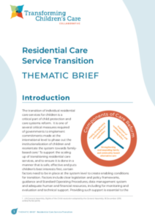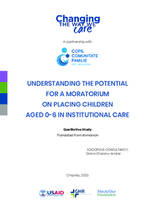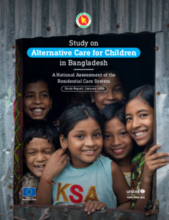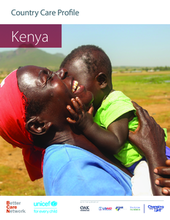Displaying 21 - 30 of 691
Leon Fulcher discusses how to attain long-term holistic development of children in alternative care.
Martin Punaks discusses effective advocacy campaigning in this episode of Care Conversations.
Disability Rights International, as part of the Global Coalition on Deinstitutionalisation (GC-DI), organized a series of thematic workshop on the UN Guidelines on Deinstitutionalization, including in emergencies.
Dr. Monisha Nayar Akhtar, a leading child psychologist and psychoanalyst talks to host Dr. Kiran Modi about the support institutionalised children need in the form of a nurturing family unit.
This study aimed to investigate the state of transformation of the child welfare service providers for neglected children in the City of Bandung as a parameter to understand the progress of the deinstitutionalization process in Indonesia.
This brief contains high-level guidance and recommendations for policy and decision-makers and development partners to consider in designing frameworks to scale up, coordinate and support the transition of individual residential care services.
This study analyzes statistical data on the institutionalization of children aged between 0-6 years; examines current practices of prevention, identification, assistance, referral, and placement in institutions and family based alternative care; evaluates the knowledge and attitudes of professionals and decision makers and outlines recommendations for the development and introduction of a moratorium on placing children aged between 0-6 years in residential care.
This landmark national assessment, led by the Ministry of Social Welfare and the Department of Social Services with UNICEF support, provides the first comprehensive mapping of residential childcare institutions across Bangladesh.
This country care profile provides an overview of key lessons learned in the children’s care reform process in Kenya, including successes, challenges and areas for progress, and gaps in learning and best practice.
У рамках цього процесу Міністерство соціальної політики України об’єднало зусилля з широким колом представників громадянського суспільства для проведення п’ятиденного навчання та інтенсивного стратегічного планування деінституціалізації протягом квітня та травня 2023 року. У цьому документі представлені ключові висновки та рекомендації, зроблені під час п’ятиденного обміну думками та стратегічного планування. Ми сподіваємося, що ці рекомендації стануть основою для процесу стратегічного планування уряду, а також допоможуть донорам визначити свої пріоритети. Всі учасники висловили побажання, щоб цей захід став «останнім поштовхом» до повної трансформації системи догляду та виховання та назавжди поклав край інституціалізації дітей в Україні.






